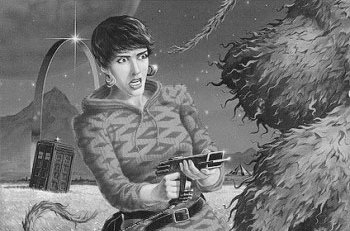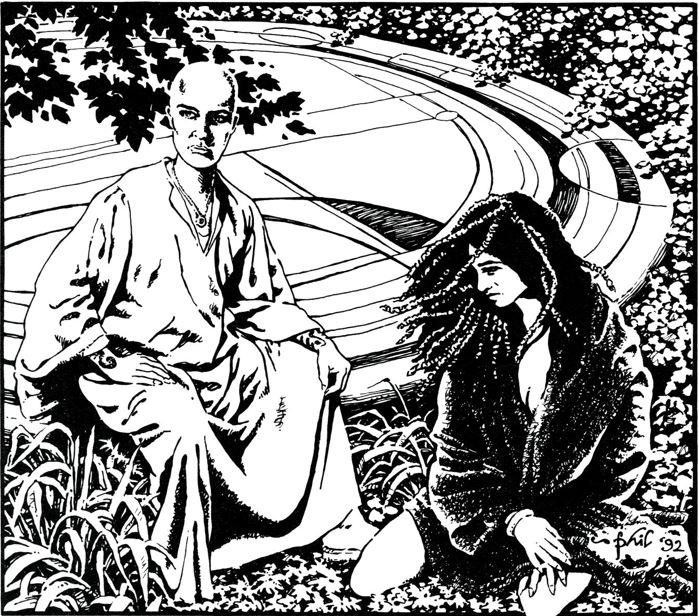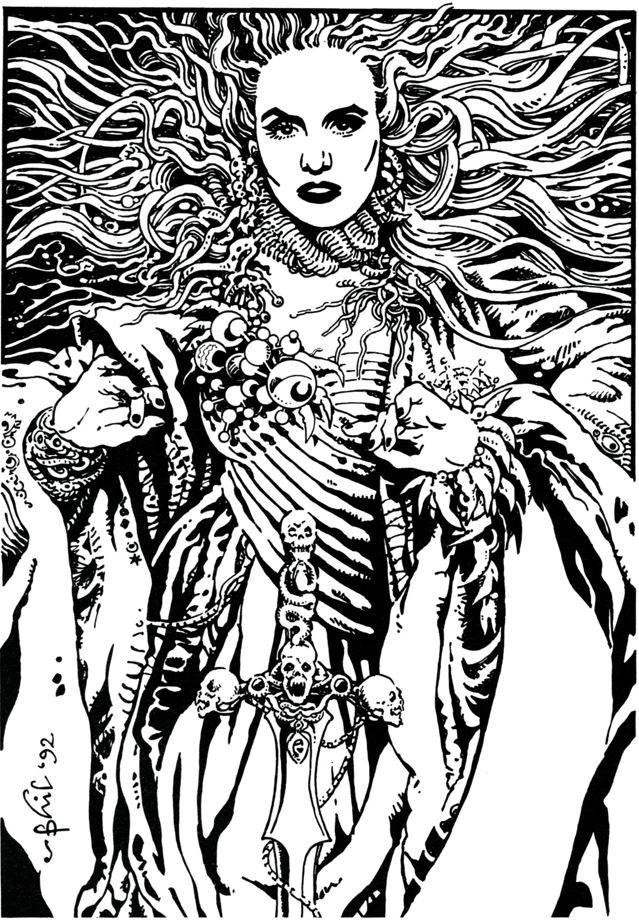Love and War (Novel)
Explore our review of Love and War by Paul Cornell, the pivotal Doctor Who novel that introduced Bernice Summerfield and redefined the Virgin New Adventures.

Warning! Spoilers ahead!

Love and War
Paul Cornell (Virgin New Adventures #9)
The Virgin New Adventures (VNAs) were more than just a series of books; they were a lifeline for Doctor Who during the wilderness years. Spearheaded by Peter Darvill-Evans and aimed at a more older audience, these novels carried the torch when the television series went off air, pushing the boundaries of what was known in regards to Doctor Who at the time, and laying groundwork that would influence both the later books and the revived TV series.
One of the standout titles in this pioneering range is Love and War by Paul Cornell, the ninth entry in the series. This novel marks a significant moment: it is where the VNAs stepped outside the (relative) safe zone and introduced their own original companion, Bernice Summerfield. Today, Benny is a cornerstone of the Doctor Who Expanded Universe, still appearing in her own audio adventures decades later. Her creation was the result of a Doctor Who Magazine competition that appealed for new companions, another of which appeared in the following novel Transit by Ben Aaronovitch in the form of Kadiatu Lethbridge-Stewart. Although a few of these popped up again, Benny was the main and longest enduring of this era.
The story begins on a sombre note, with Ace attending the funeral of her old friend Jules in Perivale. She is full of regrets, wishing she could ask the Doctor to take her back in time to see Jules again, but feeling unable to do so. This emotional thread - Ace grappling with past loss, strained relationships, and the Doctor’s increasing manipulation - runs throughout the book and adds real depth to her character. It is a turning point in her arc and makes her outburst of rage towards the end even more layered.

Ace’s relationship with Jan, a traveller living on the planet Heaven, develops quickly, but it fits with her impulsive, emotionally at-the-end-of-her-rope mindset. Having just experienced a significant loss, it makes sense that she would rush into something new and cling to it. The tragedy is amplified when the Doctor withholds crucial information about Jan's infection by the Hoothi and ultimately allows Jan to die. This betrayal drives Ace to leave the TARDIS (at least temporarily), a move that feels both necessary and deserved. Her departure gives her space to grow without the Doctor’s influence.
Enter Bernice Summerfield. From the outset, Benny is a fully formed and compelling character — sharp, witty, emotionally intelligent, and refreshingly self-aware. Unlike Ace, she approaches the Doctor not as more of an equal. She challenges him, questions his actions, and refuses to be passively swept along. Her decision to travel with him is not based on blind trust but is a deliberate choice, driven by curiosity, professional ambition, and the belief that someone should be there to hold him accountable. This new dynamic adds welcome tension and more maturity to the TARDIS team (even though Benny can be quite chaotic herself).

The world-building in Love and War is also a highlight. The depiction of the travellers felt solid and their attempt to build a safe communal life in a volatile futuristic setting is thoughtfully done. The relationship between the group and the outsiders, while characters like Christopher and the references to the Dalek War add layers to the broader universe. Benny’s background as an archaeologist and war survivor mirrors the travellers’ own struggles and helps ground her in the story.
As a bit of an extra, Prelude: Love and War appeared in Doctor Who Magazine issue 192. This short bonus introduces key characters and adds depth to their backgrounds, accompanied by beautiful artwork from Paul Bevan. Both the prelude and the novel were later adapted into an audio drama by Big Finish for the story’s twentieth anniversary.
In short, Love and War is a landmark entry in the Virgin New Adventures line. It is emotionally rich, dramatically bold, and features some of the finest character work in the range. Of Paul Cornell’s contributions to Doctor Who, this remains one of my personal favourites.